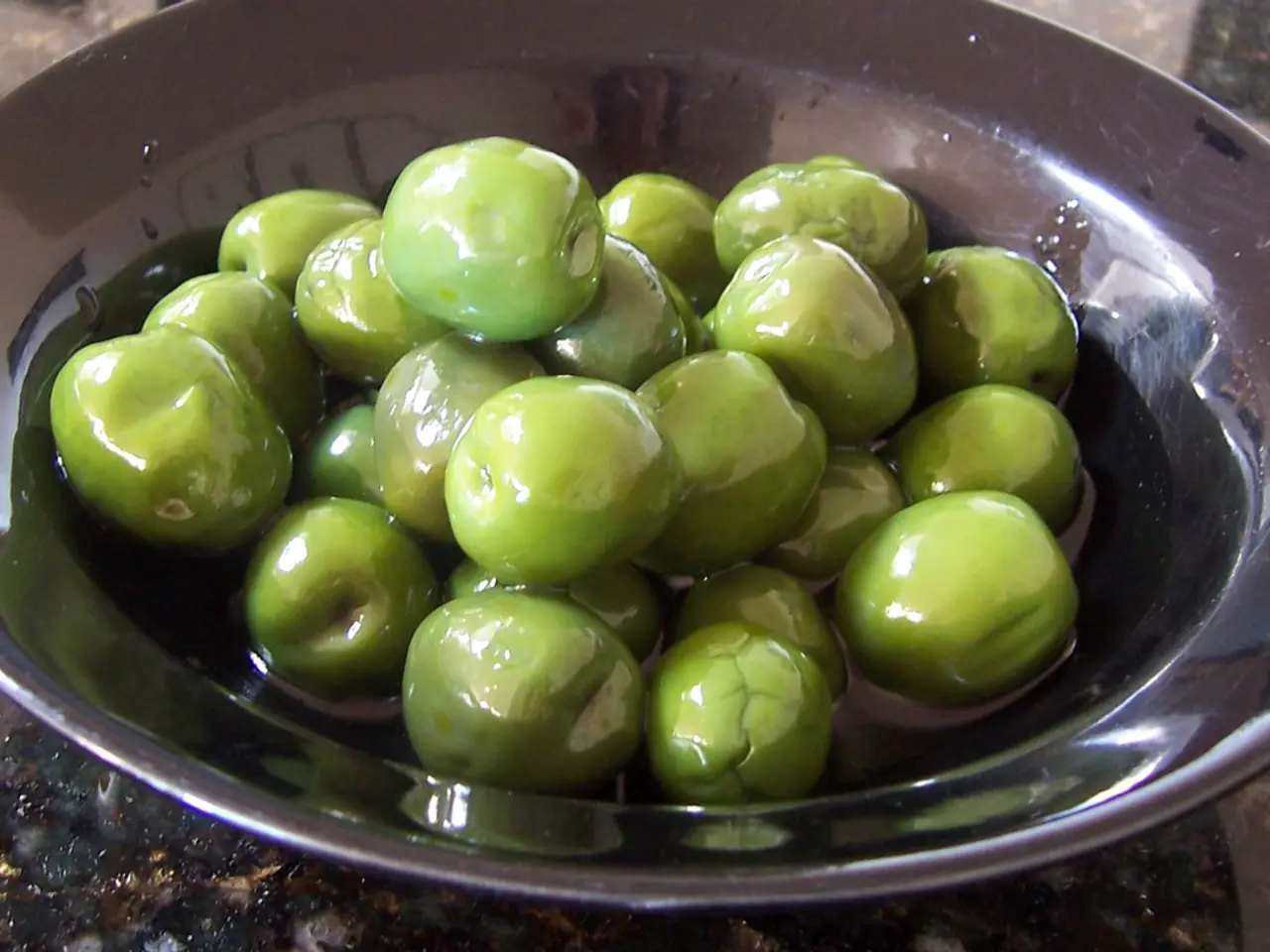Is olive oil or extra virgin olive oil more beneficial for health?
In the realm of culinary delights, the choice of cooking oil can significantly impact the taste and nutritional value of your dishes. Here's a comprehensive overview of some popular cooking oils, their health benefits, and taste profiles.
**Health Benefits**
1. **Olive Oil and Extra Virgin Olive Oil (EVOO):** Rich in monounsaturated fats, particularly oleic acid, these oils help lower blood pressure and the risk of heart disease. They contain antioxidants and polyphenols, which reduce inflammation and support gut health.
2. **Coconut Oil:** High in saturated fats, coconut oil provides heat stability and can boost metabolism. It contains lauric acid, which has antimicrobial properties and may help lower cholesterol.
3. **Other Oils:** Avocado oil, safflower oil, canola oil, and peanut oil are also healthy options with their unique benefits.
**Taste and Usage**
Olive oil has a distinct, fruity flavor suitable for low-heat cooking, salad dressings, and dips. EVOO retains more nutrients and has a stronger flavor, making it ideal for lighter dishes. Coconut oil has a rich, distinctive flavor often used in baking and high-heat cooking due to its high smoke point. Avocado oil has a mild, buttery flavor, suitable for high-heat cooking, while safflower oil and canola oil are neutral in flavor, making them good for various cooking methods.
**Comparison**
| Oil | Smoke Point | Main Fatty Acid Composition | Taste Profile & Usage | |------------------------|---------------------|-----------------------------|-----------------------| | Olive Oil (EVOO) | 350-410°F (177-210°C) | Monounsaturated | Distinct, fruity. Low heat or cold dishes. | | Coconut Oil | 350°F (177°C) | Saturated | Rich, distinct. High heat or baking. | | Avocado Oil | High (520°F / 271°C) | Monounsaturated | Mild, buttery. Suitable for high heat. | | Safflower Oil | High (510°F / 266°C) | Polyunsaturated | Neutral. Versatile. | | Canola Oil | High (468°F / 242°C) | Polyunsaturated | Neutral. Versatile and cost-effective. |
**Recommendations**
- Replacing saturated and trans fats with MUFAs, as found in olive oil, can help lower a person's risk of heart disease. - Extra virgin olive oil may be considered more healthful than regular olive oil due to its higher nutrient content. - It is recommended to use these fats instead of solid fats like butter, shortening, or lard, and tropical oils like palm and coconut oil, which have a lot of saturated fat. - Extra virgin olive oil is a more expensive option due to its less processing and higher nutrient content. - The term "light" in olive oil refers to the flavor, not the calorie content, and light oils are often processed and refined. - Extra virgin olive oil has more polyphenols than regular olive oil, which are a type of antioxidant with many health benefits. - The best place to store olive oil is somewhere cool, dry, and dark, away from radiant heat.
In conclusion, olive oil and EVOO are best for low-heat cooking and their health benefits, while coconut oil is ideal for high heat due to its saturated fat content. Avocado oil and other polyunsaturated oils like safflower and canola are versatile and healthy options for various cooking methods.
- A comprehensive PSA sheds light on the impact of cooking oil choices on taste and nutritional value, emphasizing the benefits of popular oils like olive oil and extra virgin olive oil (EVOO), coconut oil, and avocado oil, among others.
- Olive oil, rich in monounsaturated fats, helps lower blood pressure and the risk of heart disease, while EVOO's higher nutrient content and distinct flavor make it suitable for lighter dishes.
- Coconut oil, high in saturated fats, provides heat stability, boosts metabolism, and has antimicrobial properties due to its lauric acid content.
- Avocado oil, a versatile option with a mild, buttery flavor, is suitable for high-heat cooking, as is coconut oil due to its high smoke point.
- Safflower oil and canola oil, neutral in flavor, are versatile choices for various cooking methods, and canola oil is also cost-effective.
- In the realm of health benefits, replacing saturated and trans fats with olive oil's monounsaturated fats can lower a person's risk of heart disease, and EVOO is more healthful due to its higher nutrient content.
- When switching to healthier fats, it's recommended to avoid solid fats like butter, shortening, or lard, and tropical oils like palm and coconut oil, which have a lot of saturated fat.
- To maintain the quality of olive oil, it's best to store it in a cool, dry, and dark place away from radiant heat.




